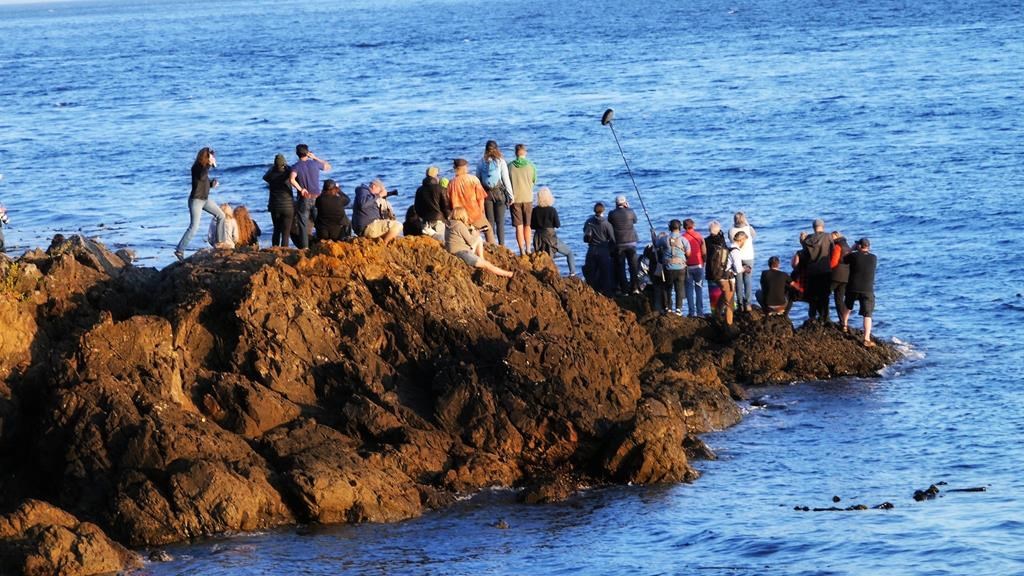A film about a “trainer turned whistleblower” at Ontario’s Marineland aquatic park has won the top audience prize at Hot Docs, which was held online this year due to the COVID-19 pandemic.

The Canadian festival says The Walrus and the Whistleblower won the Hot Docs Audience Award for a feature film, which is awarded based on audience votes.
The film follows Phi Demers, who “he had his dream job as an animal trainer for over a decade,” according to the film’s official website.
Demers swam with killer whales and ran the walrus shows at Marineland until he decided to quit his job and blow the whistle on the way the animals were treated at the aquatic park.
He became very close with a walrus he named Smooshi when she first arrived at the park as a baby.
The film shows Demers attempt to get Smooshi out of the park due to the treatment of the walrus’, who are forced to perform in shows and live in a barn in very small tanks surrounded by cages.

Get daily National news
He is being sued for $1.5 million by Marineland for plotting to steal Smooshi from the park.
“We follow Phil as he champions a law to ban the captivity of whales and dolphins, faces a lawsuit entering its 8th year, and spirals around an aching loss of identity,” the synopsis reads.
The Walrus and the Whistleblower “is a personal tale that plays out against the swell of a paradigm shift in our relationship with animals. At its heart are questions of compassion for others, humans and animals alike, the nuances of all our stories, and the hills we are willing to die on.”
The documentary directed by Nathalie Bibeau also shares the Rogers Audience Award with four other filmmakers, each of whom gets $10,000.
Among the winners is Elizabeth St. Philip’s 9/11 Kids, about the lives of 16 schoolchildren who were in the room with then-president George W. Bush when he received news of the 9/11 attack.
Other winners were The Forbidden Reel, directed by Ariel Nasr, about the rich national cinema in Afghanistan, and Suzanne Crocker’s First We Eat, about a mother that challenges her family to only eat local food at their remote home 300 kilometres from the Arctic Circle.
The final winner was There’s No Place Like This, Anyplace, from director Lulu Wei, about the Mirvish Village community of Toronto affected by the closure of Honest Ed’s.
—With files from The Canadian Press
- Martin Short’s family ‘devastated’ by death of daughter, Katherine, at 42
- David Bowie’s daughter says she missed dad’s death when forced into rehab centre
- ‘Home Improvement’ star Zachery Ty Bryan jailed after 6th arrest in 5 years
- Robert Carradine, ‘Lizzie McGuire’ and ‘Revenge of the Nerds’ actor, dead at 71








Comments
Want to discuss? Please read our Commenting Policy first.